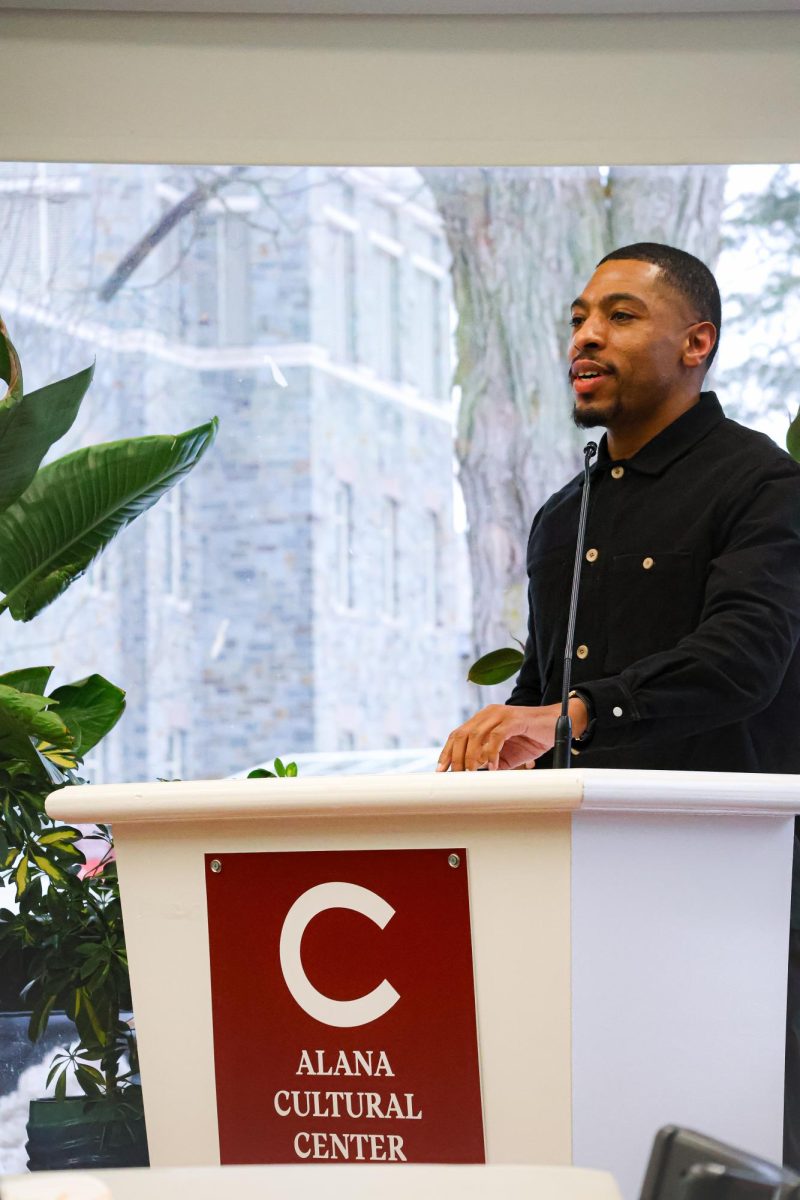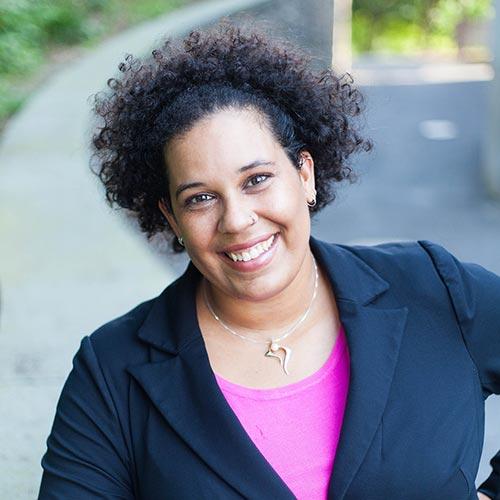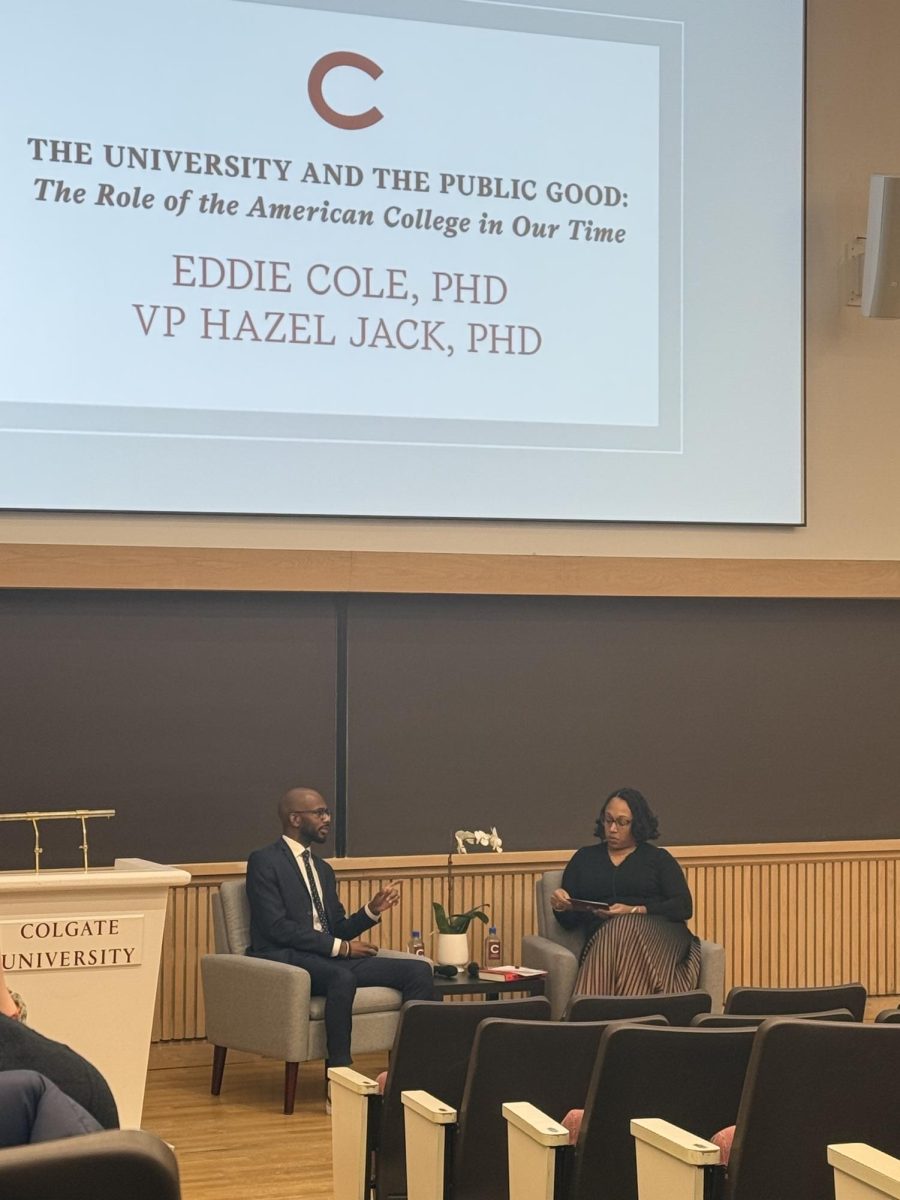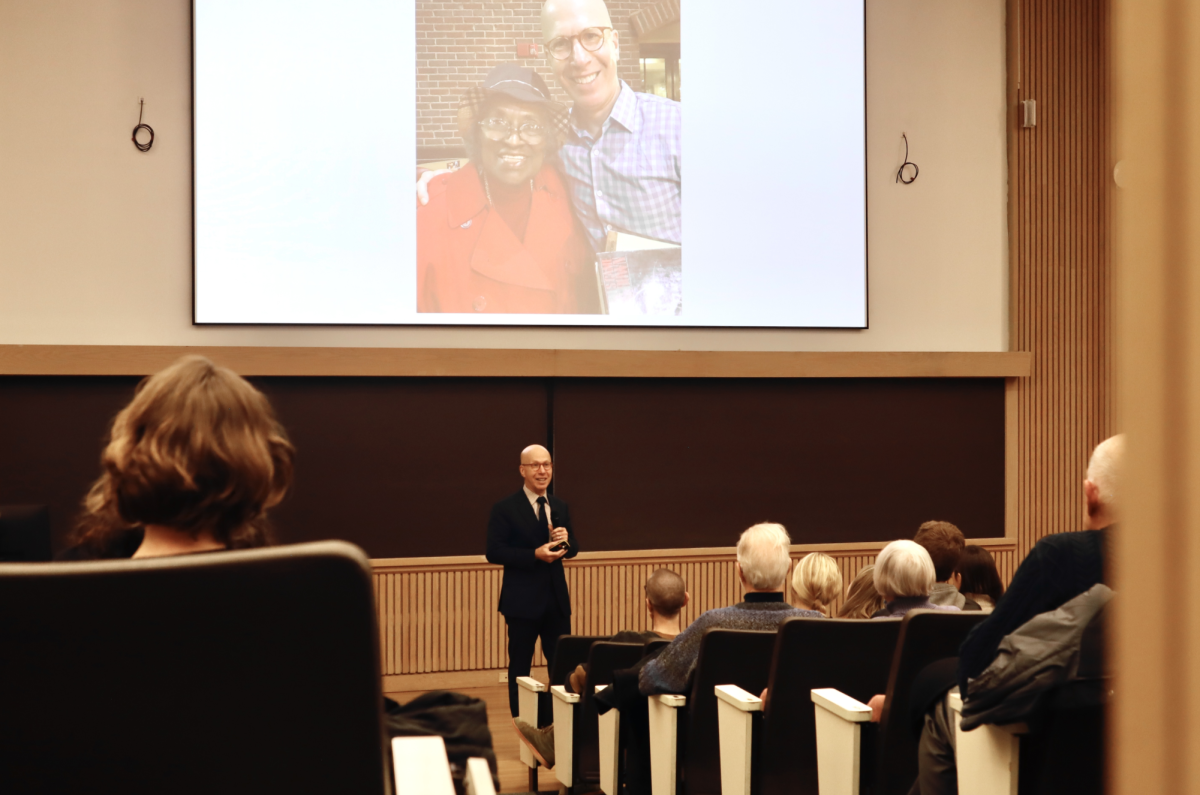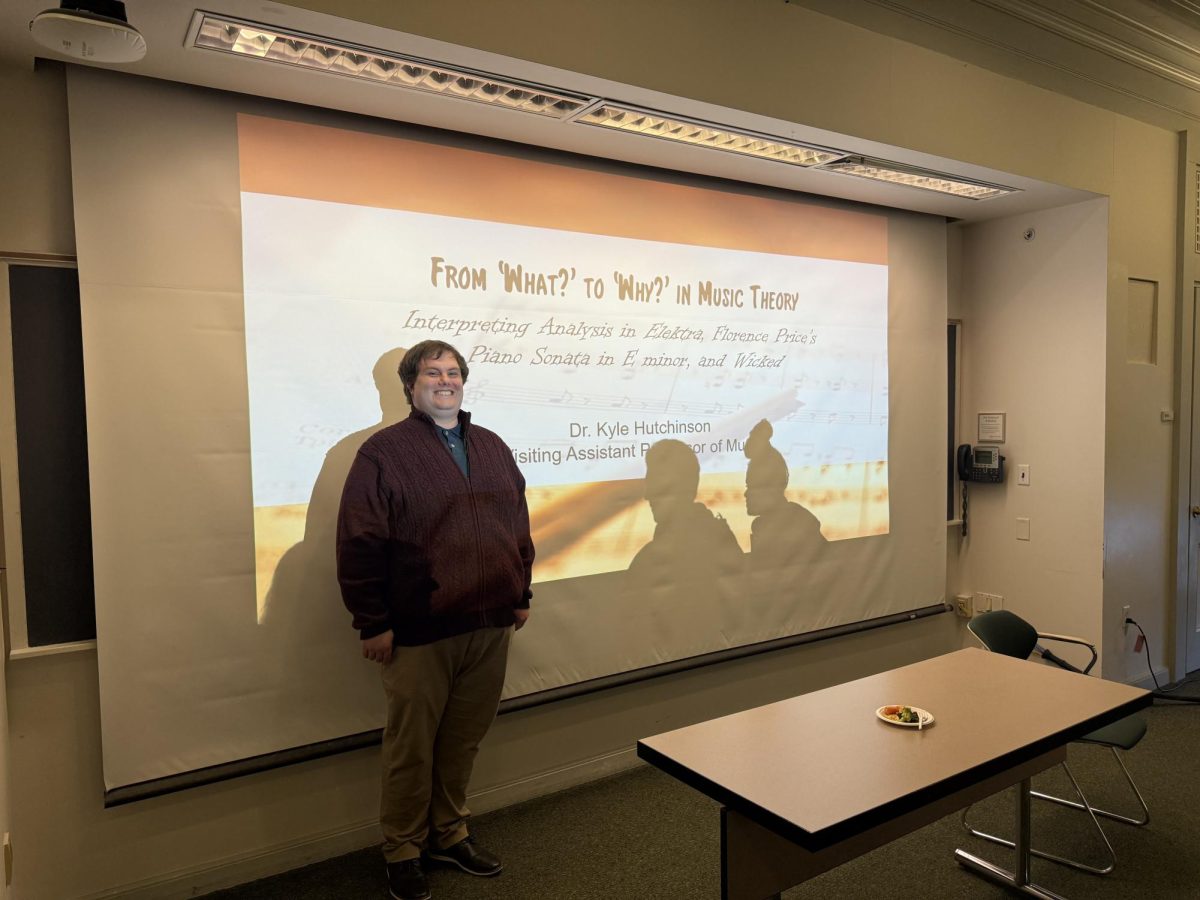Colgate University kicked off its 2024 election series, presented by the Office of the President and the Lampert Institute for Civic and Global Affairs, by welcoming former Democratic National Committee Chairwoman Donna Brazile and former Republican National Committee Chairman Michael Steele on Wednesday, Sept. 4. Brazile and Steele sat down with President Brian W. Casey to inform the student body about a variety of issues, including how they got involved in politics and what is at stake in the upcoming election.
“Elections are a pillar of democracy. By educating ourselves on the issues and listening closely to a range of opinions, we become more engaged citizens,” Casey wrote in an email to the student body on Aug. 29.
At its heart, the lecture was meant to encourage participation in democracy. The former chairs spoke candidly, and students enjoyed the banter between the combating party representatives. The speakers consistently encouraged students to get more involved — to engage with the world around them in a meaningful way. Many times throughout the lecture, both speakers implored the student body to make sure they were registered to vote, to read about the political issues going on in the United States and to volunteer at local polling precincts.
Sophomore Tucker McPartlin attended the event and enjoyed the themes of engagement.
“I thought that the event provided a lot of hope,” McPartlin said. “It was good to see that at least some officials in both parties can come together to promote civic engagement and democracy while having an honest conversation about the direction of the country and their respective parties.”
Beyond the encouragement of civic engagement, the speakers told students about their origins within their respective parties. The first point of inquiry from Casey was about how these two influential characters became invested in politics, a question to which Brazile and Steele had very different answers.
Brazile became involved in politics after the assassination of Martin Luther King, Jr., admitting that she wanted to finish his dream. She also connected her path in politics to her childhood, including knocking on doors for a local city council election at eight years old.
“We needed a playground,” Brazile said. “There was a playground on the other side of the tracks for the Black kids, but we needed a new playground!”
Thirty years later, she became the first Black woman to run a presidential campaign when she undertook the position of campaign manager for Vice President Al Gore’s presidential campaign in 2000. At this point, Steele interjected that King’s dream had been realized, directly influenced by the persistence and dedication of Brazile.
Steele’s story of his political involvement started later than Brazile’s. His anecdote began with a desire to be a priest. When he was in seminary, Steele said that God had called him to serve in a different way. The sentiment that drove him was the idea that “it’s not about you, it’s about everyone else.” As he was searching for ways to serve, he found law back in Washington, D.C., where he became a paralegal and practiced. Steele went on to call himself an “accidental candidate,” saying he never intended to be lieutenant governor of Maryland or chair of the Republican Party, but that his calling to serve led him to go into politics to make a difference. Both Steele and Brazile agreed that leadership is one of the most important aspects of society.
“The value of leadership is the most important gift public servants offer to the people,” Steele said. “Leaders are extensions of us.”
The two continued the conversation around this year’s election and addressed the elephant in the room: President Joe Biden’s decision to drop out. Brazile, who continues to be involved in the Democratic Party, spoke about her experience after the presidential debate on June 27.
“It was probably one of the most difficult experiences of my life,” Brazile said.
A mere 14 minutes into the debate, she was getting phone calls and realized that something was wrong with the president. What ensued was, in her words, a “bloody hot mess.” Brazile explained how she found out that Biden was ill on a plane the next morning from his son Hunter Biden. Both speakers called Biden an “honorable and decent man” who made a good decision in dropping out. However, Steele did have some criticism for the infighting that happened in the Democratic Party afterward.
Beyond the personal anecdotes, the speakers presented the audience with the harsh reality of what is at stake in the upcoming election and the importance of the youth vote.
“Y’all need to come and replace me. I keep trying to leave,” Brazile said.
Both leaders implored the students to volunteer at their local polling place and emphasized the importance of local and state governments, arguing that they make more consequential decisions than the national government at times.
“Make a plan to get involved. Why you? Because there’s no one better,” Brazile said.
Both speakers emphasized the need to trust the American government to work.
“The missing ingredient in American politics is lack of trust,” Brazile said.
To conclude the discussion, the two speakers laid out how young people can make their voices heard by voting. According to them, the first thing everyone in the audience should do is register to vote or make sure they are registered to vote. Then, conversations need to be had between everyone, because learning to talk with our families about politics is the most important thing to help heal the divide in our country. Lastly, the leaders urged students to raise questions about what’s happening in the news.
Colgate’s election speaker series will continue on Sept. 16 with a talk from Karl Rove, the former senior advisor and deputy chief of staff to President George W. Bush.


